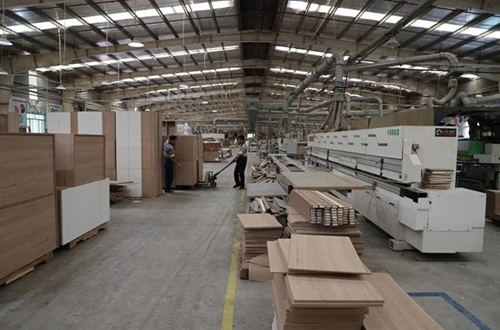July 18, 2024 | 22:12 (GMT+7)
U.S. cancels tax evasion probe into wooden cabinets imported from Vietnam
The U.S. Department of Commerce (DOC) has ended in its entirety the probe into trade remedy tax evasion on wooden cabinets imported from Vietnam, according to the Trade Remedies Authority of Vietnam (TRAV) under the Ministry of Industry and Trade.
Following an investigation into the scope of products, the U.S. side has maintained that the preliminary conclusion had been adjusted in September 2023, the TRAV cited the conclusion issued recently by the DOC.
Three cases of wooden cabinets imported from Vietnam, with components produced in China, were within the scope of duty orders on wooden cabinets from China.
    |
 |
|
Wooden goods are made for export at a factory in Long An province. (Photo for illustration) |
The TRAV said that the DOC will send a notice to the U.S. Customs and Border Protection (CBP) to instruct the application of the Certificate Regime to Vietnamese wooden cabinets.
The mechanism will allow local firms that do not fall into the above three cases to be exempted from anti-dumping or countervailing duties, when exporting items to the U.S. market.
The TRAV suggested Vietnamese exporters complete the self-certification declaration form for exporters and provide a copy and supporting documents including invoices, orders and production records to the U.S. importer. At the same time, the importers need to complete the self-certification declaration form for importers before the shipment date.
In addition to having a self-certification application, Vietnamese firms are advised to retain records and documents as a basis to prove that confirmation within five years from the time the shipment is exported so that the U.S. authorities can verify if necessary.
To protect the legitimate rights and interests of Vietnamese enterprises, the TRAV also has recommended that local businesses fully comply with the regulations set by the Certificate Regime and closely coordinate with the agency to receive timely support.
Since April 2020, the U.S. has imposed anti-dumping and anti-subsidy duties on wooden cabinets originating from China, with anti-dumping tax rates ranging from 4.37% to 262.18%, as well as anti-subsidy tax rates ranging from 13.33% to 293.45%.
Source: VNA